David N. Tse
Ultra Fast Medoid Identification via Correlated Sequential Halving
Jun 11, 2019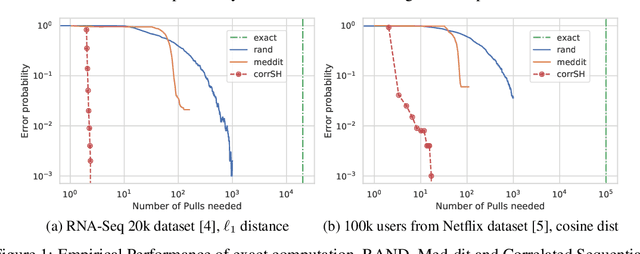

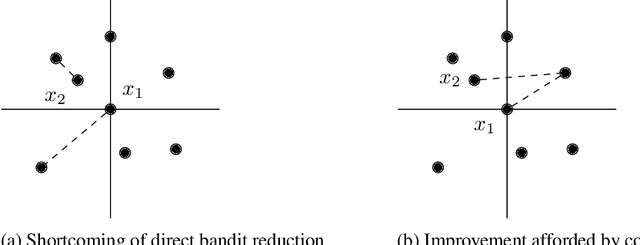
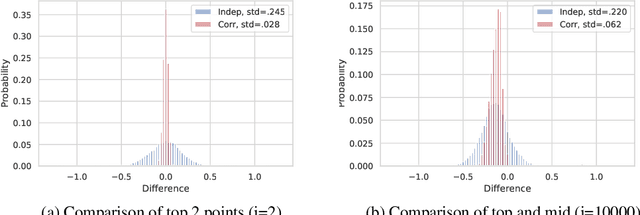
Abstract:The medoid of a set of $n$ points is the point in the set that minimizes the sum of distances to other points. Computing the medoid can be solved exactly in $O(n^2)$ time by computing the distances between all pairs of points. Previous work shows that one can significantly reduce the number of distance computations needed by adaptively querying distances. The resulting randomized algorithm is obtained by a direct conversion of the computation problem to a multi-armed bandit statistical inference problem. In this work, we show that we can better exploit the structure of the underlying computation problem by modifying the traditional bandit sampling strategy and using it in conjunction with a suitably chosen multi-armed bandit algorithm. Four to five orders of magnitude gains over exact computation are obtained on real data, in terms of both number of distance computations needed and wall clock time. Theoretical results are obtained to quantify such gains in terms of data parameters. Our code is publicly available online at https://github.com/NEURIPS-anonymous-2019/Correlated-Sequential-Halving.
Adaptive Monte-Carlo Optimization
May 23, 2018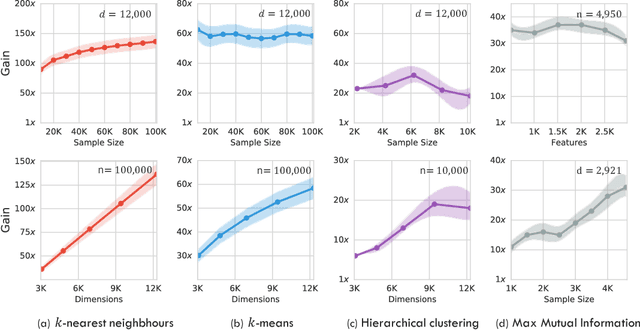

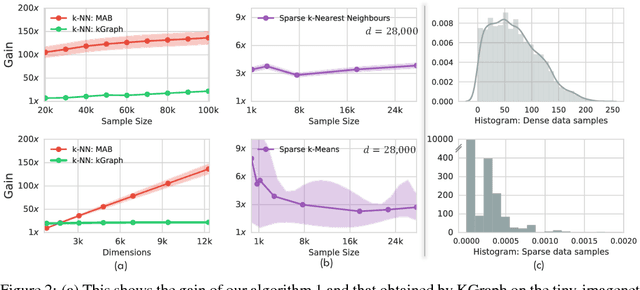
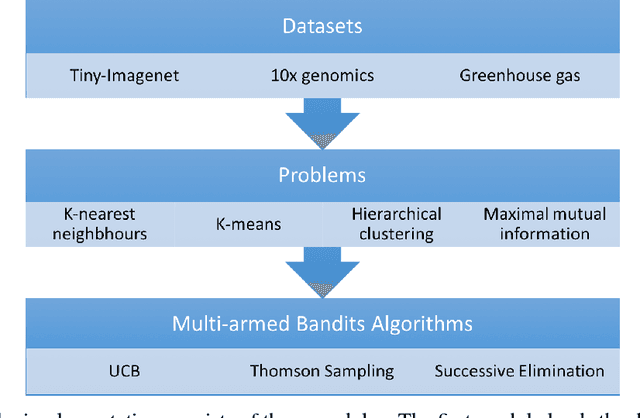
Abstract:The celebrated Monte Carlo method estimates a quantity that is expensive to compute by random sampling. We propose adaptive Monte Carlo optimization: a general framework for discrete optimization of an expensive-to-compute function by adaptive random sampling. Applications of this framework have already appeared in machine learning but are tied to their specific contexts and developed in isolation. We take a unified view and show that the framework has broad applicability by applying it on several common machine learning problems: $k$-nearest neighbors, hierarchical clustering and maximum mutual information feature selection. On real data we show that this framework allows us to develop algorithms that confer a gain of a magnitude or two over exact computation. We also characterize the performance gain theoretically under regularity assumptions on the data that we verify in real world data. The code is available at https://github.com/govinda-kamath/combinatorial_MAB.
 Add to Chrome
Add to Chrome Add to Firefox
Add to Firefox Add to Edge
Add to Edge